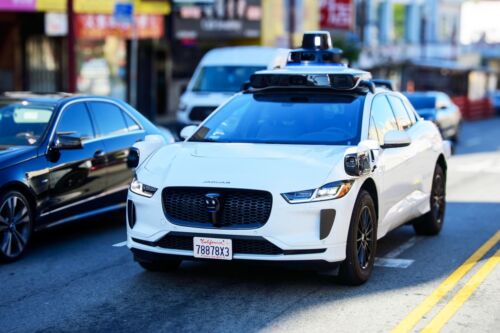



As the promise of self-driving cars moves closer to becoming a reality, it presents a host of complex legal and ethical questions about who is liable if a self-driving car crashes. Under a traditional fault-based framework, human error is typically the most significant factor in determining who was at fault for causing a car crash. However, as human drivers begin to share the road with self-driving vehicles, lawmakers, regulators, and attorneys will need to reassess established laws and develop new approaches to adapt to this emerging technology.
Vehicle manufacturers and other supporters of self-driving vehicles suggest they are safer than traditional human-operated ones. Vehicle automation systems do not get distracted or tired, and they do not become impaired by drugs or alcohol. They can reduce traffic congestion by choosing more efficient routes, optimizing speed, and preventing stop-and-go traffic. Autonomous vehicles offer lower transportation costs, reduced emissions, and new productive time for individuals who no longer need to focus on driving. They could also be used to increase mobility for individuals who cannot drive due to age, disability, or health conditions.
According to the National Highway Traffic Safety Administration (NHTSA), “[T]here is no vehicle currently available for sale that is fully automated or ‘self-driving.’ Every vehicle currently for sale in the United States requires the driver’s full attention for safe operation.” However, driver-assist technology is quickly becoming standard on many vehicles. This technology alerts drivers who drift outside of their lane, provides automatic braking to help avoid collisions, and provides alerts to discourage distracted driving.
The Department of Transportation uses a scale developed by the Society of Automotive Engineers (SAE) to classify vehicles according to their level of autonomy.
The highest level self-driving vehicle currently available for public use in the United States falls between a Level 2 and Level 3.
Under a traditional legal framework for proving liability in a car accident, the legal system evaluates who was at fault for causing the crash and allocates legal liability accordingly. Each driver is evaluated to determine whether they violated any traffic laws, were driving carelessly, or otherwise failed to exercise due care. The at-fault party is responsible for the resulting harm, including the payment of economic losses like medical bills, lost wages, and out-of-pocket expenses, as well as non-economic losses like pain and suffering, loss of consortium, and loss of enjoyment of life.
Even as self-driving vehicles begin to appear on the road, the technology has not yet evolved to the point where driving is fully automated. In the near term, automated vehicles are unlikely to entirely eliminate car accidents, and drivers must understand the limitations of self-driving technology. Individuals who place undue trust in an automated vehicle or abuse the technology can still be held liable for causing a car accident. However, change is coming, and lawmakers must be prepared by creating a legal framework to account for liability in a self-driving car crash.
Under the current legal framework, liability in a self-driving car crash could extend beyond the driver to include the vehicle manufacturer, software engineers, and others. Attorneys and insurance adjusters will need to determine whether the vehicle’s self-driving features were engaged, the extent of the driver’s legal duties at the time of the accident, and whether the self-driving features failed in any way.
Determining who is liable if a self-driving car crashes could also involve questions about how the self-driving vehicle was programmed and the extent to which the hardware or software could have contributed to the crash. Attorneys and insurance adjusters will need to gather and analyze information and data about the automated vehicle’s sensors, monitoring equipment, and response systems. If the automated system was to blame, the legal claim could fall under product liability law, in which case the injured individual would need to prove the system was defective, establish the scope of the product’s expected use, and prove their injuries were caused by a defective product.
In addition to questions of legal liability, the advent of self-driving vehicles raises important ethical questions. Autonomous vehicles must be programmed to make split-second decisions to avoid collisions. But how will they respond when faced with two undesirable outcomes?
Legal claims involving catastrophic injuries and wrongful death will raise challenging ethical questions about how self-driving vehicles are programmed to respond and who should be responsible for the outcomes of those decisions. Liability could easily expand to include the vehicle manufacturer, software engineers, programmers, and others involved in developing and implementing autonomous vehicle technology.
To properly represent their clients, attorneys will need to understand the latest autonomous vehicle technology and regulations and how they impact liability in an autonomous vehicle accident. Attorneys will need to be prepared to address issues such as driver liability, data collection, and liability on the part of creators and manufacturers of autonomous vehicle technology.
The advent of self-driving vehicle technology has the potential to reshape traditional notions of liability. Lawmakers, regulators, and legal experts will be called upon to establish clear guidelines that address the legal and ethical implications of self-driving vehicle technology.
The Lebedevitch Law Firm is positioned as a leader in the rapidly developing field of legal liability for self-driving vehicles. We are poised to provide comprehensive and cutting-edge legal representation in this emerging area of the law, and remain committed to providing the highest quality legal advice and representation to clients in in Stamford, Greenwich, New Canaan, Norwalk, Darien, Rowayton, Fairfield, Trumbull, Westport, Wilton, Weston, Danbury, New Haven, Bethany, Woodbridge, Milford, Stratford, Bridgeport, and throughout the State of Connecticut.
Contact The Lebedevitch Law Firm today to schedule an appointment to discuss your situation and how we can assist you.
© 2025 The Lebedevitch Law Firm, LLC
| View Our Disclaimer | Privacy Policy
Law Firm Website Design by The Modern Firm